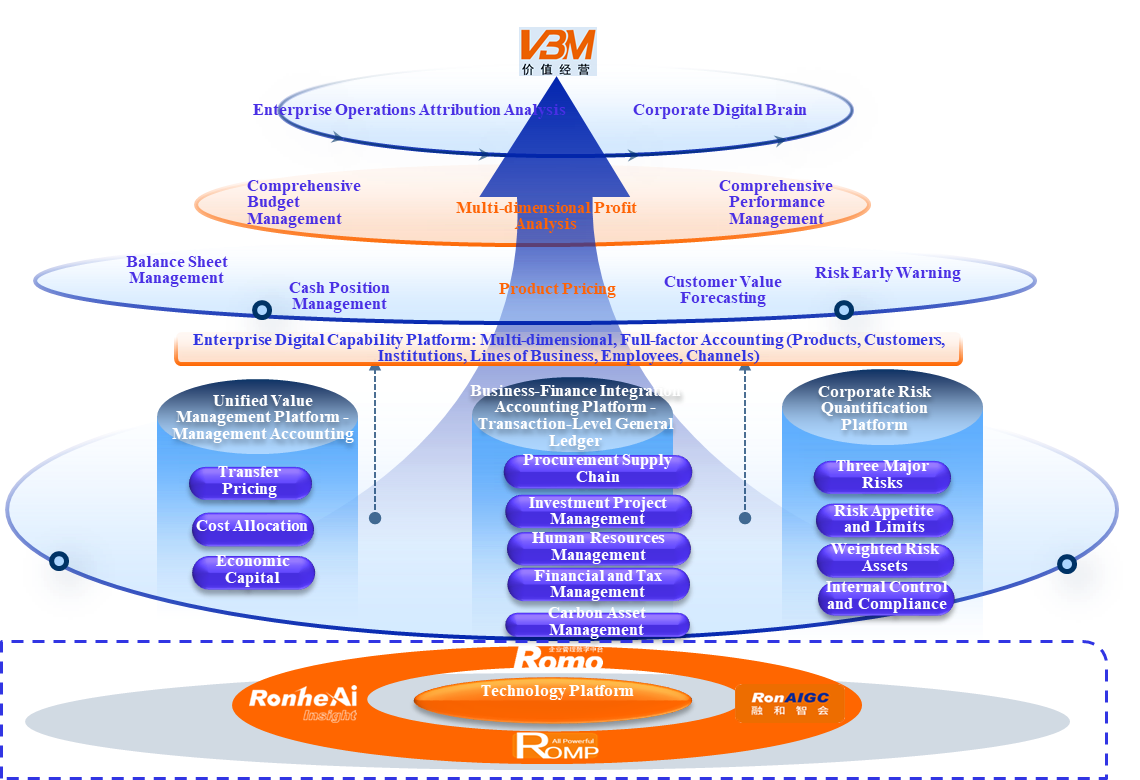
Concept and Overview
The enterprise embraces a value-centric management philosophy, with sustainable development as its fundamental goal. It eschews the inherent concept of prioritizing scale, instead following a decision-making chain focused on "discovering value, creating value, and managing value." The company utilizes indicators such as EVA/RAROC as key value measurement standards across its products, customers, business units, employees, and channels. This framework guides the continuous development and refinement of its strategies, market objectives, management frameworks, assessment systems, and corporate culture, thereby fostering the sustained growth of enterprise value and ensuring the harmonious unity of customer, employee, shareholder, and social value.
Architecture and main functions

The Value-Based Management (VBM) AI agent is a sophisticated enterprise management AI agent, built upon the principles of value-based management and leveraging advanced digital technology. It encompasses a wide range of applications, including accounting, financial management, human resource management, investment management, procurement and supply chain, carbon asset management, profit management, and risk management. As an integrated enterprise management platform, it seamlessly unifies business transactions, accounting, analysis, and decision-making. By identifying, collecting, storing, analyzing, and mining both internal and external data, it serves as an intelligent management tool that guides enterprises through the entire process, from learning and strategic thinking to proactive warnings, predictive analytics, and informed decision-making. Ultimately, it functions as the critical decision-making nerve center, empowering enterprises to achieve excellence in precision marketing, digital procurement, product innovation, cost control, internal control compliance, risk warning, and other vital areas.



